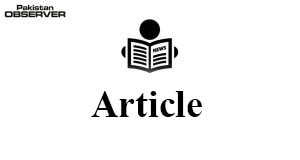English literature in Pakistan
LITERATURE opens up a world of inspiration and creativity, while also develop skills that are essential for today’s global environment. It is a chance to discover how literature makes sense of world through stories, poems, novels and plays. Being reflective of contemporary trends of the era, it should always incorporate current fashions and requirements.
The Pakistani literary landscape of 21st century has grown quite fertile since the country’s inception. The brilliant authors like Bapsi Sidhwa, Mohsin Hamid, Kamila Shamsie, Bina Shah, Bilal Tanweer, Muhammad Hanif, Shazaf Fatima Haider and many others have written some highly acknowledged novels.
Their work is based on themes about Pakistani identities politics, Pakistani culture, nationalism, gender based issues, religious conflicts and terrorism etc. Their work is mainly about “being Pakistani” vibe, probably, because of their status of having lived and studied in abroad for a longer period of time.
Laila Kasuri in her article “Writing Science Fiction” appreciates the efforts of contemporary Pakistani English writers; however, she admits that other than the domination of stereotypical themes in their works, the readership for scientific content is also rare. She narrates her own experience of writing science fiction based collection of short stories and poems, titled Spontaneous Expression in 90s.
Unfortunately, her effort was not acknowledged, “I’ve realized that the readership for English fiction was limited and my writing would hardly ever taken seriously by anyone in Pakistan, so I quit writing fiction and focused instead on climbing another ladder”, says Kasuri. Multiple evidences show that Pakistani English literature is still stuck with the same problem; however, a gradual change has seeped in.
The readers in 21st century do have mixed receiving patterns and it can be assumed (from the successful viewership of Netflix sci-fi series and Harry Potter etc) that they want to enjoy watching/reading adventure stories about robotics, fighter pilots, computer technology and science fiction. Yet the gap lies in the fact that the contemporary English literature produced in Pakistan by Pakistani writers or diaspora has ignored science fiction and fantasy (SFF). Ursula K Le Guin, a famous SFF writer, defines:
“All fiction is metaphor. Science fiction is metaphor. What sets it apart from older forms of fiction seems to be its use of new metaphors, drawn from certain great dominants of our contemporary life – science, all the sciences, and technology, and the relativistic and the historical outlook, among them. Space travel is one of these metaphors; so is an alternative society, an alternative biology; the future is another.”
Usman T Malik, the author of Midnight Doorways and a proud Pakistani winner of Bram Stoker award, has recently expressed his deep concern on under representation of Sci-fi writings in Pakistan. He spoke in a webinar titled “Discussion on Pakistan Science Fiction”, he stated, “Pakistani science fiction has been historically non-existent, except for a few writers”.
However, “I can say 2020 was the year science fiction came of age in Pakistan,” he said. He thinks that this gap has been bridged to some extent by writers like Mohsin Hamid. Hamid’s Exit West that is a story of a young couple in a war-torn city, who travel and flee at different places through the magical doors. Similarly, Kamila Shamsie’s The Djinn Falls in Love and Other Stories is another contribution towards scientific popularity.
Like usman, Nudrat Kamal is hopeful about the emergence of sci-fi and fantasy in South Asian literature, he states, Whereas “science fiction” as a distinct, recognizable genre term only came together in the early 20th century and “fantasy” a few decades after that”.
It can be said that, due to a long history of terrorism and war on terror, people now need a break and they want to read new progressive and futuristic stories relevant to 21st century. Therefore, it is about time that Anglophone Pakistani literature should move on and leave behind the typical post 9/11 burden of trying to challenge western stereotypes or getting nostalgic for the past only.
—The writer is Assistant Professor English, University of Jhang, Punjab.










